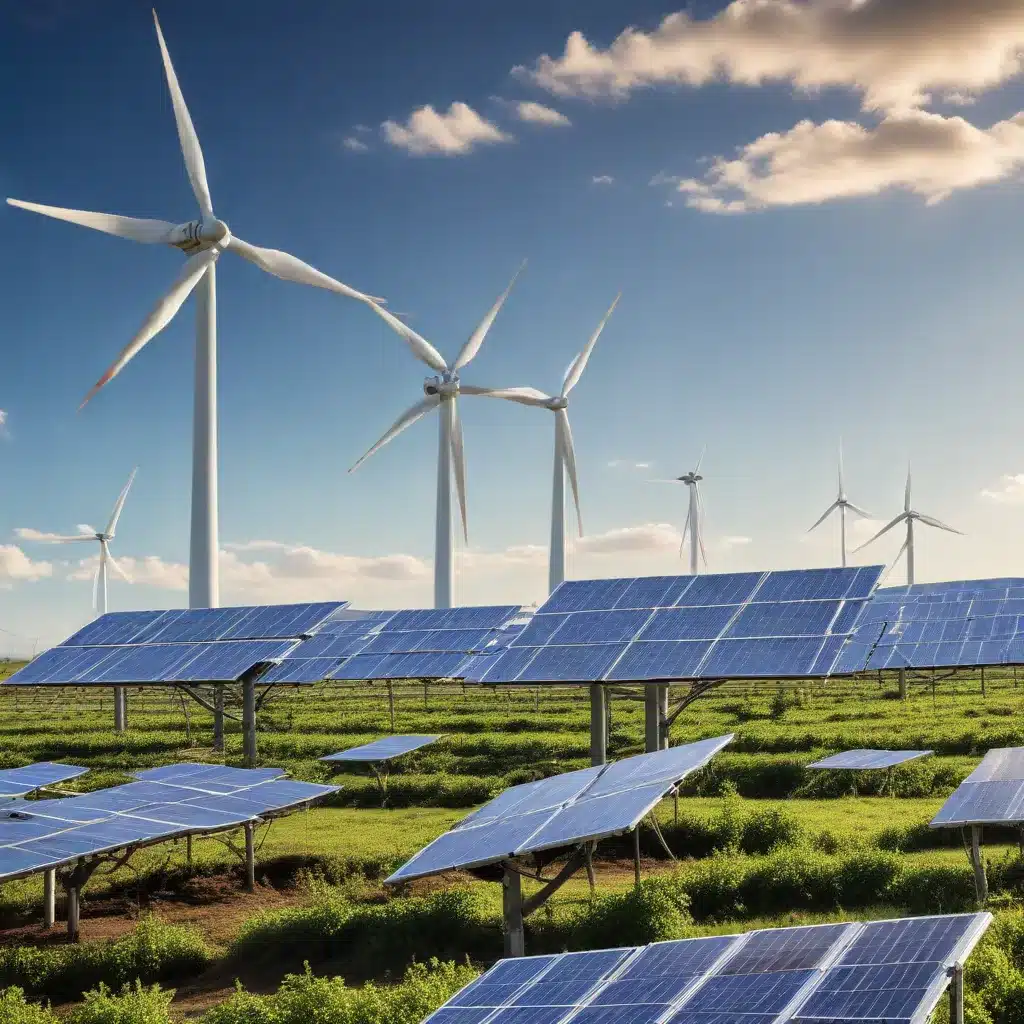
As the world grapples with the escalating climate crisis, Europe has emerged as a global leader in harnessing the potential of renewable energy technologies to drive a sustainable energy transition. From record-breaking wind farm expansions to pioneering hydrogen pilot projects, the continent is at the forefront of innovations that are reshaping the future energy landscape.
The Role of Solar Power
In recent years, solar photovoltaic (PV) installations have experienced exponential growth across Europe, with countries like Germany, Italy, and Spain leading the charge. Advancements in solar cell efficiency, coupled with plummeting module costs, have made solar power an increasingly viable and cost-effective option for both residential and utility-scale applications. The European Union’s ambitious goal of achieving at least a 55% reduction in greenhouse gas emissions by 2030 has further spurred investments in large-scale solar farms and distributed rooftop solar systems.
Harnessing Wind Energy
Europe’s commitment to renewable energy is perhaps most evident in its rapid expansion of wind power capacity. Countries like Denmark, the United Kingdom, and Germany have emerged as global leaders, with offshore wind farms playing a significant role in their energy mix. Technological breakthroughs, such as the development of taller, more efficient wind turbines and innovative floating offshore wind platforms, have enabled the industry to tap into previously inaccessible wind resources, further bolstering Europe’s renewable energy potential.
Emerging Hydropower Solutions
While traditional hydroelectric power has long been a staple of Europe’s energy portfolio, the region is also exploring innovative hydropower solutions to complement its growing renewable energy ecosystem. Initiatives like pumped-storage hydropower and run-of-river hydropower projects are gaining traction, offering efficient ways to store and distribute renewable energy while minimizing environmental impact.
Innovations in Sustainable Technology
As Europe continues to push the boundaries of renewable energy, a wave of technological innovations is paving the way for a more sustainable and resilient energy future.
Advancements in Battery Storage
One of the most critical challenges in the transition to renewable energy has been the need for reliable energy storage solutions to address the intermittent nature of solar and wind power. However, the rapid development of advanced battery technologies, including lithium-ion, flow batteries, and solid-state batteries, is helping to overcome this obstacle. These innovations are enabling longer-duration energy storage, improving grid reliability, and facilitating the integration of renewable sources into the power grid.
Smart Grid Integration
Alongside advancements in energy storage, the emergence of smart grid technologies is transforming the way renewable energy is generated, transmitted, and consumed. By leveraging artificial intelligence, machine learning, and Internet of Things (IoT) devices, smart grids can optimize the flow of electricity, improve grid balancing, and empower consumers to make more informed choices about their energy usage.
Efficiency Improvements
Across the renewable energy sector, ongoing research and development are driving significant improvements in efficiency and cost-effectiveness. From solar panel efficiency gains to advancements in wind turbine blade design, these enhancements are helping to make renewable energy solutions more accessible and competitive with traditional fossil fuel-based power generation.
Societal Impact of Renewable Energy
The transition to a sustainable, renewable-powered future is not just about technological advancements; it also has far-reaching societal and environmental implications.
Reducing Carbon Footprint
Perhaps most notably, the widespread adoption of renewable energy sources is playing a crucial role in addressing the global climate crisis. By reducing greenhouse gas emissions and carbon footprints, Europe’s renewable energy initiatives are contributing to the global effort to limit the devastating impacts of climate change.
Economic Benefits
Beyond environmental benefits, the renewable energy sector is also driving economic growth and job creation across Europe. The expansion of wind, solar, and other renewable technologies has resulted in the emergence of new industries, ancillary services, and a skilled, green-collar workforce – all of which are contributing to the continent’s economic prosperity.
Environmental Preservation
Renewable energy solutions not only mitigate climate change but also help to preserve the natural environment by minimizing the environmental impact of power generation. From the protection of biodiversity and natural habitats to the reduction of air and water pollution, Europe’s renewable energy initiatives are playing a vital role in safeguarding the planet for future generations.
Policy and Regulatory Frameworks
Realizing the full potential of renewable energy solutions requires a robust policy and regulatory framework that incentivizes investment, removes barriers, and promotes cross-border collaboration.
Government Incentives
Across Europe, governments have introduced a range of policy instruments to support the growth of the renewable energy sector. These include feed-in tariffs, tax credits, renewable energy credits, and carbon pricing mechanisms, all of which are designed to make renewable energy more attractive and accessible to consumers and businesses.
International Collaboration
Recognizing the global nature of the climate challenge, European countries have actively engaged in international cooperation to accelerate the transition to renewable energy. Initiatives such as the European Green Deal and the EU’s Renewable Energy Directive have fostered cross-border collaboration, knowledge-sharing, and the development of harmonized standards – all of which are essential for creating a truly integrated and efficient renewable energy market.
Sustainable Financing Models
In addition to government support, the renewable energy sector has also benefited from the emergence of innovative financing models, including green bonds, sustainability-linked loans, and crowdfunding platforms. These innovative approaches to funding have helped to unlock private capital and drive further investments in renewable energy projects across Europe.
As Europe continues to lead the global charge towards a sustainable energy future, the region’s unwavering commitment to renewable energy solutions and technological innovation is poised to power a brighter, more resilient tomorrow. By harnessing the power of the sun, wind, and water, and by fostering a collaborative, policy-driven ecosystem, Europe is charting a course towards a cleaner, more prosperous, and environmentally responsible energy landscape – one that can serve as a model for nations around the world.







